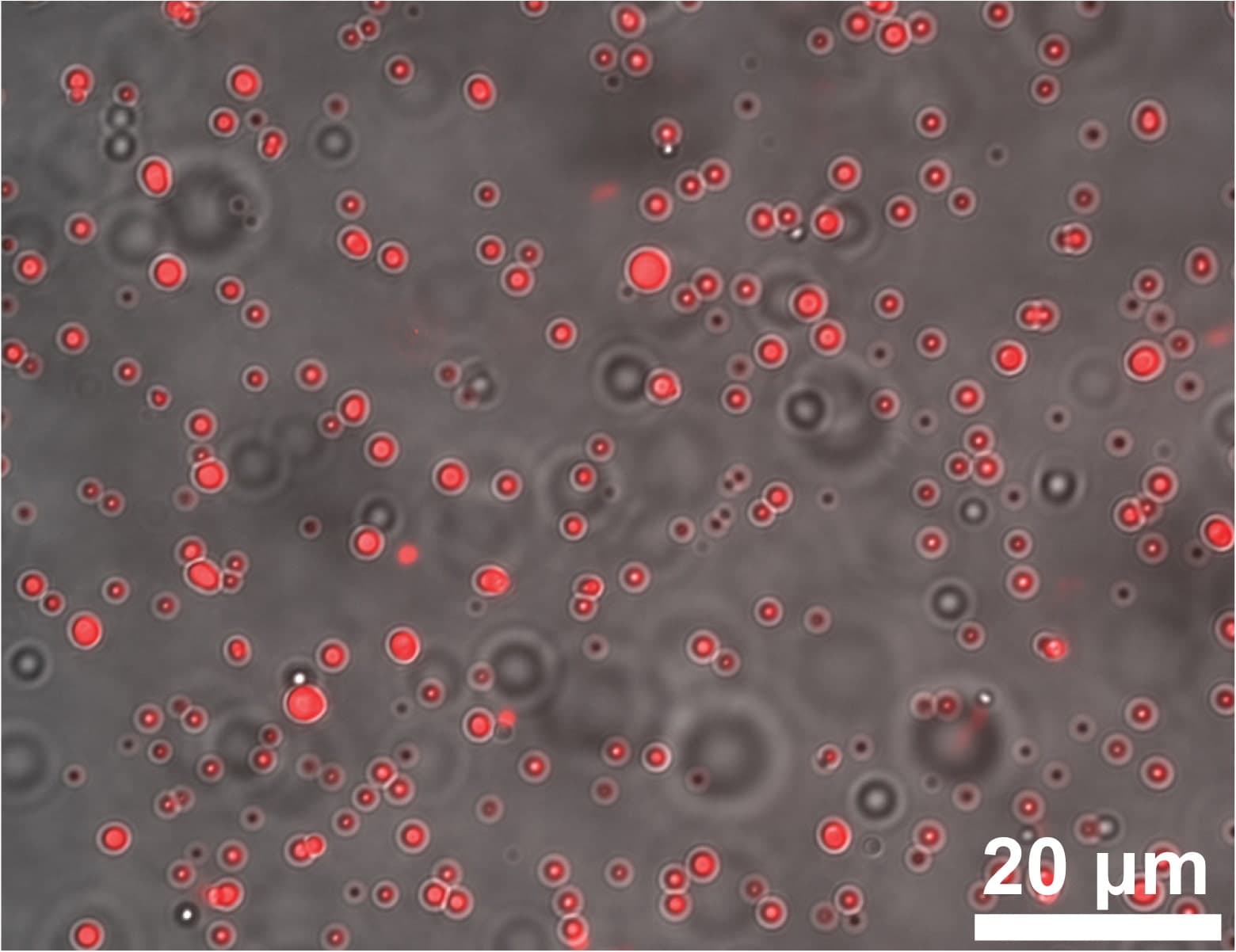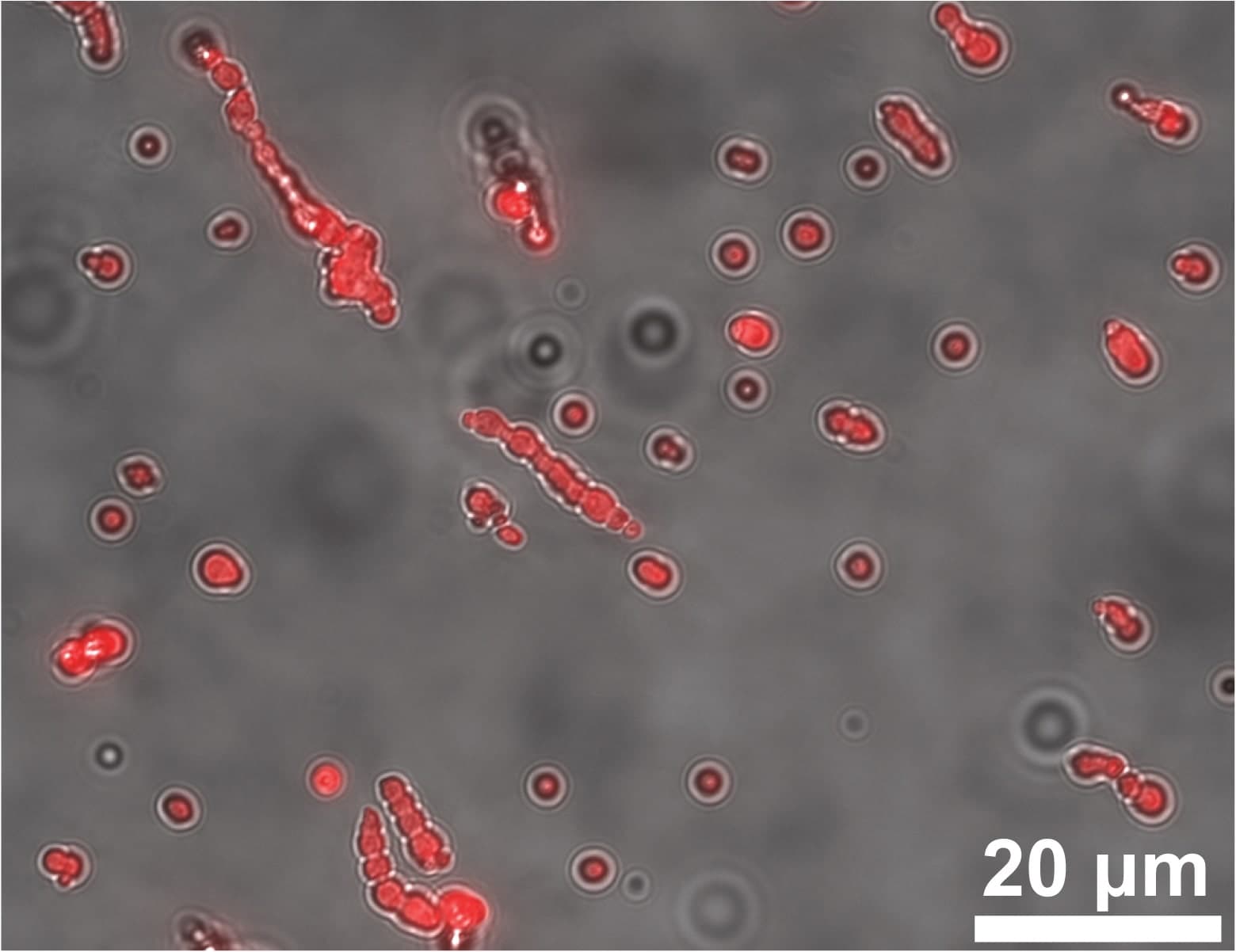By concentrating specific biomolecules, while excluding others, without erecting a physical barrier, Liquid-Liquid Phase Separation (LLPS) gives rise to fluidic droplets, which are found across multiple lengths scales of the biological media, from the nucleus to the cytoplasm and from the cell membrane to the extra-cellular environment. By performing highly differentiated functions, these droplets act as dynamic “membraneless organelles” that allow the living system to exploit thermodynamics to rapidly assemble (and disassemble) molecular collectives and switch on –or turn off– new functionalities, in space and time, according to its needs. This Tier 3 research programme aims to closely integrate the tools of cell biology and colloidal biochemistry with the framework developed in the materials science of polymer science, soft matter, and complex fluids, with the aim of unravelling LLPS-mediated functional organization across multiple biological length scales. The program also seeks to exploit the unique physico-chemical characteristics of complex droplets formed by LLPS into translational applications, including as stimuli-responsive carriers in therapeutic treatments, wet adhesives for tissue repair, micro-droplets for cell-free gene expression, or sustainable bio-based composite materials.
This program led by Assoc. Prof. Ali Miserez from BBML/MSE, will be in close collaboration with Co-PIs from the School of Biological Sciences (SBS) at NTU (see below for list of collaborators).

